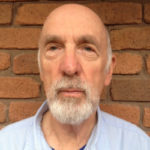DAVID STEPHENS. This is why the $498m extensions to the Australian War Memorial should not go ahead
Mar 26, 2019Saturday’s Nine (Fairfax) newspapers carried a story about 83 distinguished Australians signing a letter opposing the plan to expand the Australian War Memorial in Canberra at a cost of $498m. The letter says the extensions cannot be justified, they show the Memorial is being given preference over other national institutions, and the money could be better spent. The letter and the full list of signatories.
Among the signatories to the letter are renowned Australian authors, Richard Flanagan, Thomas Keneally, and Don Watson, leading historians Marilyn Lake, Stuart Macintyre, Mark McKenna, Henry Reynolds, and Clare Wright, three former heads of Australian government departments, two former Australian ambassadors, a former Director and Deputy Director of the War Memorial, and the founding Chair of the International Campaign to Abolish Nuclear Weapons, which won the Nobel Peace Prize in 2017. Out of the 83 signatories, 24 have been honoured with awards under the Order of Australia.
The case for the extensions has been promoted vigorously by the Memorial’s Director, Dr Brendan Nelson, who has received bipartisan support, following a consultation process conducted largely behind closed doors. The plans were unveiled at a lavish media opportunity in Parliament House in November.
Yet, the arguments for the extensions are deeply flawed and in part misleading. Spokespersons for the Memorial have focussed sharply on the need to display recent conflicts and for a ‘therapeutic milieu’ and contemplation space for veterans of these conflicts. In fact, the Memorial’s own promotional videos show that much of the extra space will be used for a grandiose entry foyer or to ‘park’ decommissioned helicopters and aeroplanes that the Memorial has been bequeathed by the Department of Defence. This includes an F-111 aircraft, a type which has never been used by Australia in conflict.
The Memorial also complains that only a fraction of its holdings can be put on display at any one time. Yet, most museums around the world are able to display only between five and ten per cent of their holdings. The Guggenheim in New York manages to display only about three per cent of its holdings at once, the Louvre in Paris around eight per cent. The Imperial War Museum in Britain probably displays a larger proportion, but that is because it has five separate sites.
It is legitimate to compare the War Memorial with museums because increasingly the Memorial’s display elements are coming to overwhelm its role as a memorial. The emphasis on acquiring military ‘kit’ – large toys for the boys – is an example of this. Increasingly, critics of the Memorial have applied terms like ‘Disneyland’ and ‘theme park’ to it.
People have been reluctant to criticise the Memorial, however, for fear of being seen as unpatriotic or disloyal. Of course, the Memorial is ‘sacred’ to some people, but Anzac is not a state religion. Australians are free to be agnostic or atheist about Anzac.
There is much more to Australian history than Anzac and overseas wars, but Dr Nelson, on behalf of the Memorial, persists with the furphy that the Memorial tells ‘our story’. There are, in fact, many Australian stories; Australia is more than Anzac, and always has been. Even the story the Memorial tells about our overseas wars is incomplete: it concentrates heavily on what Australians have done in war rather than on what war has done to Australia and Australians.
The Memorial has traded on its ‘sacred’ status – and Dr Nelson’s networks with government – to achieve better financial outcomes than other national cultural institutions. It has suffered less from the efficiency dividend than have other institutions and it gets an easy run through accountability mechanisms like Senate Estimates and annual reporting. It needs to be held to account more rigorously than it has been. The letter signed by 83 Australians was an attempt to apply some of the rigour that has been lacking and to open debate on important issues like how we commemorate our wars and how we preserve our heritage.
More than a century after Gallipoli we are still commemorating in much the same way (gazing at artefacts; weeping at stories of ‘the fallen’; muttering ‘Lest We Forget’) while today’s veterans suffer homelessness and suicide and mental illness in higher numbers proportionately than the rest of us. There are far better things on which to spend half a billion dollars, such as increased expenditure on mental health services for recent veterans and on help for their families. That would be a practical form of commemoration.
Within the cultural field, there should be equity between institutions and an end to special deals for the Memorial. Governments – and the people who vote them in – should no longer be taken in by arguments founded on spurious ‘sacredness’ and promoted by skilled spruikers.
David Stephens is the editor of the Honest History website (honesthistory.net.au) and a member of Heritage Guardians, a small committee coordinating a campaign against the Memorial extensions.




